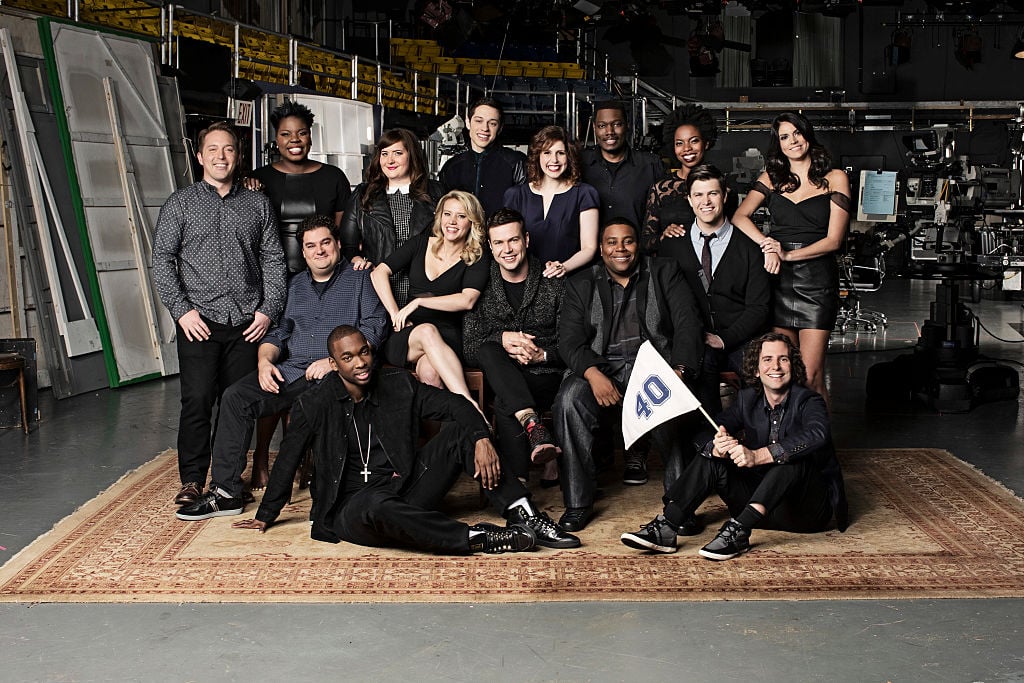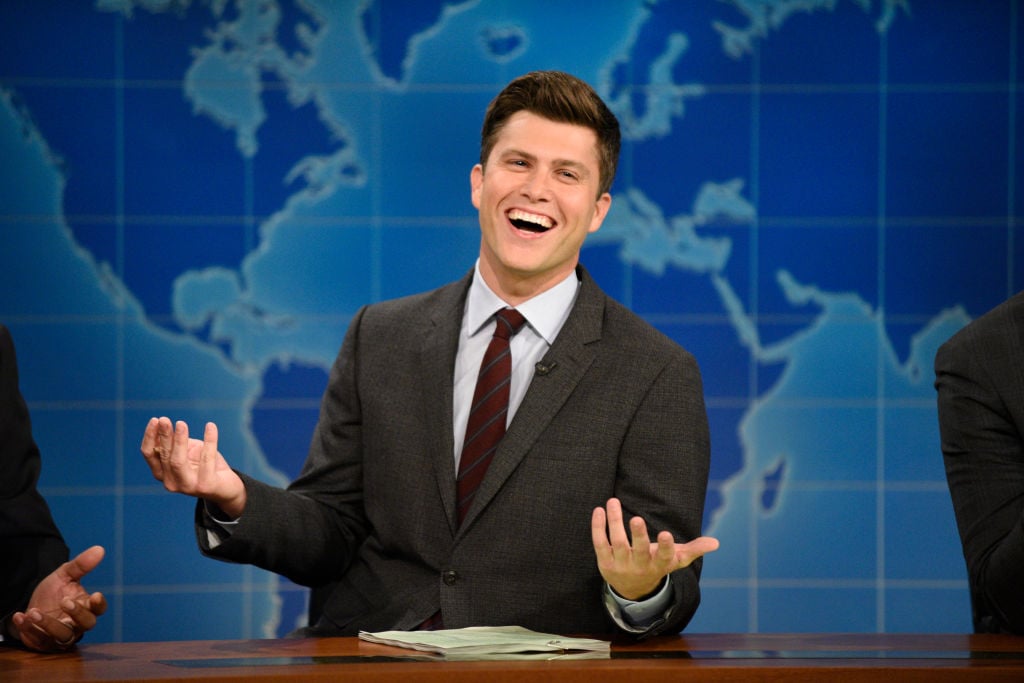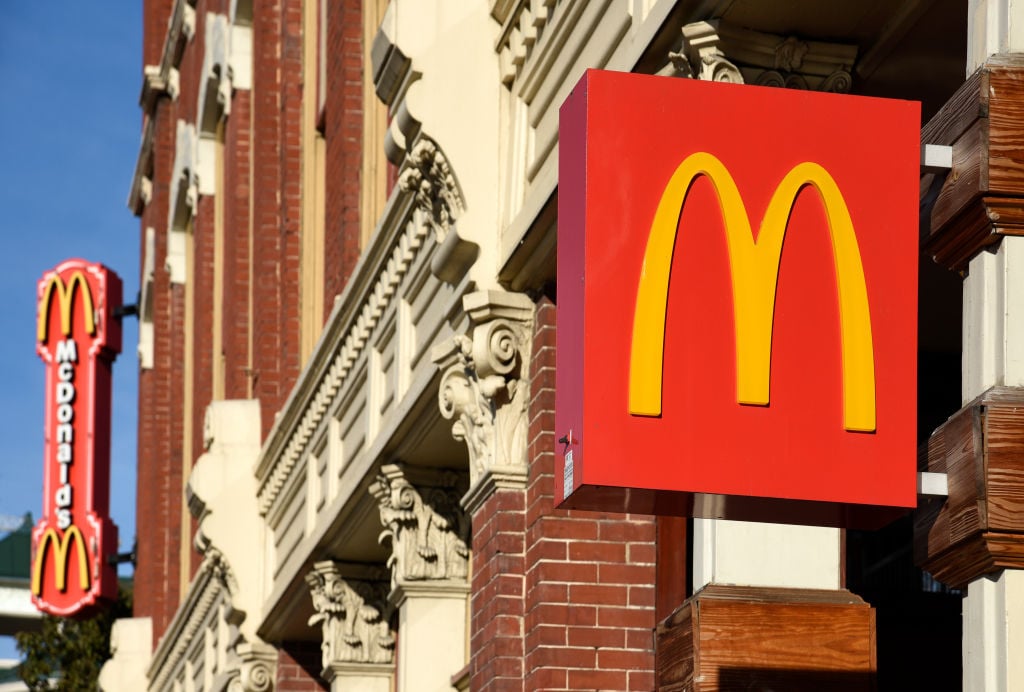‘Saturday Night Live’: Why McDonald’s Demanded ‘SNL’ Change This ‘Weekend Update’ Joke
Saturday Night Live has relatively free rein to joke about a wide variety of topics — thanks to Lorne Michael’s industry influence, as well as the fact that the show airs late on a weekend night. However, Colin Jost revealed in his new memoir that SNL does indeed change jokes when advertisers request it. For example, why did McDonald’s ask Saturday Night Live writers to change this “Weekend Update” joke about them?
‘Saturday Night Live’ cast member Colin Jost publishes a memoir about writing for the NBC series

On comedy journalist Seth Simon’s SubStack page, he did a few deep dives into Jost’s book A Very Punchable Face. Perhaps the most interesting take that Simons extracted from the memoir? The secrets about Saturday Night Live that Jost might not even understand he’s revealing. As the writer puts it: “the vaguely discernible outlines of stories Jost doesn’t realize he’s telling, and the revelations he doesn’t realize he’s making.”
One of those revelations more or less outs SNL for the way the show capitulates to McDonald’s and other corporations who take issues with their jokes.
“This is a normal relationship for a show like SNL to have with its advertisers,” Simons clarified. “I am not here to suggest it makes SNL uniquely corrupt.” What the journalist did take issue with was the way Jost wrote about corporate advertiser’s input in his memoir.
Which ‘Weekend Update’ joke about McDonald’s got changed on ‘SNL’?
In Jost’s chapter titled “Notes from the Censor,” he “details memorable notes he’s gotten from advertisers and NBC,” Simons reported.
The “Weekend Update” host maintains that “SNL writers are fortunate to receive few network notes,” and that “standards are lax” because of the late hour of the night that the show airs.

However, the writers at Saturday Night Live have indeed run into notes from advertisers, causing them to re-write jokes. One of Jost’s examples of that had to do with fast-food giant McDonald’s.
In A Very Punchable Face, Jost recalls writing this joke for a “Weekend Update” segment:
McDonald’s is reportedly unveiling a new slogan: ‘Lovin’ Not Hatin’.’ Which narrowly beat out their other slogan: ‘Eat the Rats This Clown Killed.’
But McDonald’s, which was “a prominent advertiser on that particular show,” complained. Then, the ad department at NBC sent the SNL team this message:
In the McDonald’s joke, could the clown not specifically kill rats? We’re fine if the clown kills something, but we’d prefer if it wasn’t specifically rats. McDonald’s has never sold rat meat.
The Saturday Night Live writers subsequently updated the joke to the following:
McDonald’s is reportedly unveiling a new slogan: ‘Lovin’ Not Hatin’.’ Which narrowly beat out their other slogan: ‘Eat What This Clown Killed!’
Colin Jost’s interesting relationship with ‘Saturday Night Live’ corporate advertisers
Jost’s response to the change in his book? That the McDonald’s note “might make the joke even better?”
“And it made me like McDonald’s more as a corporation, because they were relatively cool about the joke,” Jost continued.
For starters, Simons didn’t see how the Saturday Night Live writer would like the company more after they asked to alter his own joke to something less specific — considering that specificity and detail tend to objectively make things funnier. Also, the re-write is no doubt more favorable to McDonald’s as a company.
But it also dives into a bigger issue about who is allowed to tell jokes on the series — and what kind of jokes they are.
Just because, for example, Saturday Night Live doesn’t make openly branded content, “SNL’s sponsors buy the power to control how they’re made fun of,” Simons argued.
“For many of them this is probably the whole point!” the journalist continued. “Advertising isn’t solely about encouraging people to buy a product; it’s about creating positive associations with a brand.”

Therefore, Simons wants to “interrogate SNL’s relationship with its advertisers more broadly.” The way Saturday Night Live tells jokes — and what they joke about — may reveal more about its ties to sponsors.
“‘Did a brand pay you to tell this joke?’ is only one question we can pose,” Simons explained. “The more important one may be, ‘Did a brand pay you not to tell some other joke?'”


